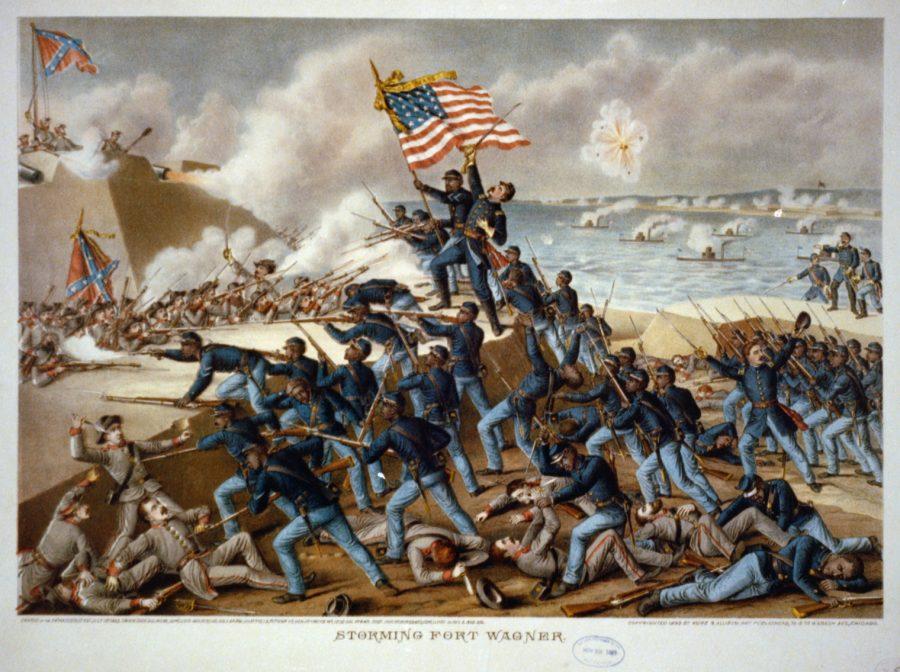Whenever I’m in a crowd with predominantly non-black people, be it at a St. Patrick’s Day celebration or what have you, I always wonder to myself, “How many of these folks despise me for breathing?”
I never find out, though, because I’m either on my sixth drink or stay habitually zenned out as the lyrics of Jadakiss or Montana of 300 bump in my ear.
Still, it is clear that racists are all around us. They’re in our classrooms teaching or learning (or trying to stay awake), running our hospitals and state agencies. They’re policing us, serving us our food, or making sure our busses and trains carry us to our daily morning destinations. The list goes on.
If one takes the time to step back and look at the truth our busy lives so seldom give us the chance to observe, it becomes very easy to simply ignore it or forget it outright. Recently, SNL comedian Michael Che came under fire (or praise, depending on your viewpoint) for calling Boston “the most racist city I’ve ever been to.”
I can’t say I disagree with the man. Countless Bostonian baby-boomers, both black and white, remember the social uproar of the mid-70s during the desegregated busing conflict. We all know that South Boston is, for lack of a better word, where most of Boston’s fame comes from. Many, but certainly not all, of the reputable Boston Globe’s most renowned journalists came from there. Several of our most esteemed politicians, both past and present, hail from there as well. Names like Kennedy still carry weight in this town. Even names on the wrong side of the law, like Bulger, still mean something to some people in Boston.
And this makes sense because, after all, Boston was and still very much is a white town. Boston was settled by English Puritans, and later, liberated from a foreign power by their patriotic descendants. Ultimately, it was fought over by Irish and Italian immigrants before being won by the former. This dominance is prevalent in the vast Irish culture present throughout the city.
People like to think Boston isn’t racist because we’re a blue state and black people, by and large, have been Democratic voters since the days of MLK. Despite that, I’m nearly positive that every man who has held public office in any town or city in Massachusetts was either English or Irish from the city’s founding in 1630 to 1900. Now I haven’t bothered to research this, but feel free to prove me wrong. But even if I am wrong, does it really matter? Cause these guys definitely weren’t black, indigenous, Latino, or Asian. That’s for sure.
If that weren’t enough, look at how the city chose to identify its first, and only, professional NBA team—the Boston Celtics? That name always threw me out of the window, ya know? Like, seriously, Celtics? Are you kidding me?
The Celtic’s name comes from the name of an ancient people known as the Celts. They were the various people who lived across Europe when the Roman Empire was expanding during the fourth century BC. The common factor between the tribal groups was the Celtic family of languages. The region where the languages still have the strongest presence is Scotland, Wales, part of France, and, of course, Ireland. In the early 1940s, team founder Walter Brown thought of an earlier basketball team from New York named the Celtics and figured, since Boston had a large Irish population, the Celtics was a great name to use for his team.
That’s like if I had a hockey team in China and I named them the Beijing Mandarins when not a single one of my players was Chinese. Silly, I know.
This cracks me up because even though the city was mostly Irish, obviously not every player on the team could say the same. Bill Russell, the greatest player in team history and the player with the most NBA championships ever, is not Irish (in case you didn’t know). And neither are these guys: NBA Hall of Famers Nate Archibald, Dennis Johnson, Sam Jones, K.C. Jones, Robert Parish, JoJo White, and Paul Pierce.
Growing up across the river on the north side of Cambridge, I heard stories about how blacks could not be in the predominantly white area of East Cambridge after certain hours for risk of racial violence. And even my old high school, Cambridge Rindge and Latin, was apparently a racial battleground in the 70s and 80s. Stories of hate crimes and how white students would stare at black students as if they were zombies from an 80s B-horror flick echoed from teachers and parents of friends.
Boston’s black neighborhoods of Dorchester, Roxbury, and Mattapan have a long history of crime. So why hasn’t a black crime figure been half as embraced, for better or for worse, by the city and local media as Bulger has? A crazy thought, I know, but I do have a point. Also, wasn’t the entire UMass system run by his brother Billy?
Crispus Attucks, a black man, was the first martyr of what would soon become an American Revolution. He died right near Park Street Station. The 54th Massachusetts Colored Regiment helped turn the tide of the American Civil War. Black people have bled for this city as much as anyone else. Never forget that, because once you do—racist or not—progress halts and the suffering of the silenced perpetuates unchallenged.
With that said, I end on this note: if the little brother of the next major black Boston criminal is qualified to run UMass, I would hope that the administration would be open minded enough to offer an interview.
I mean they did it once; they could do it again. Right?





















































